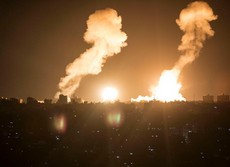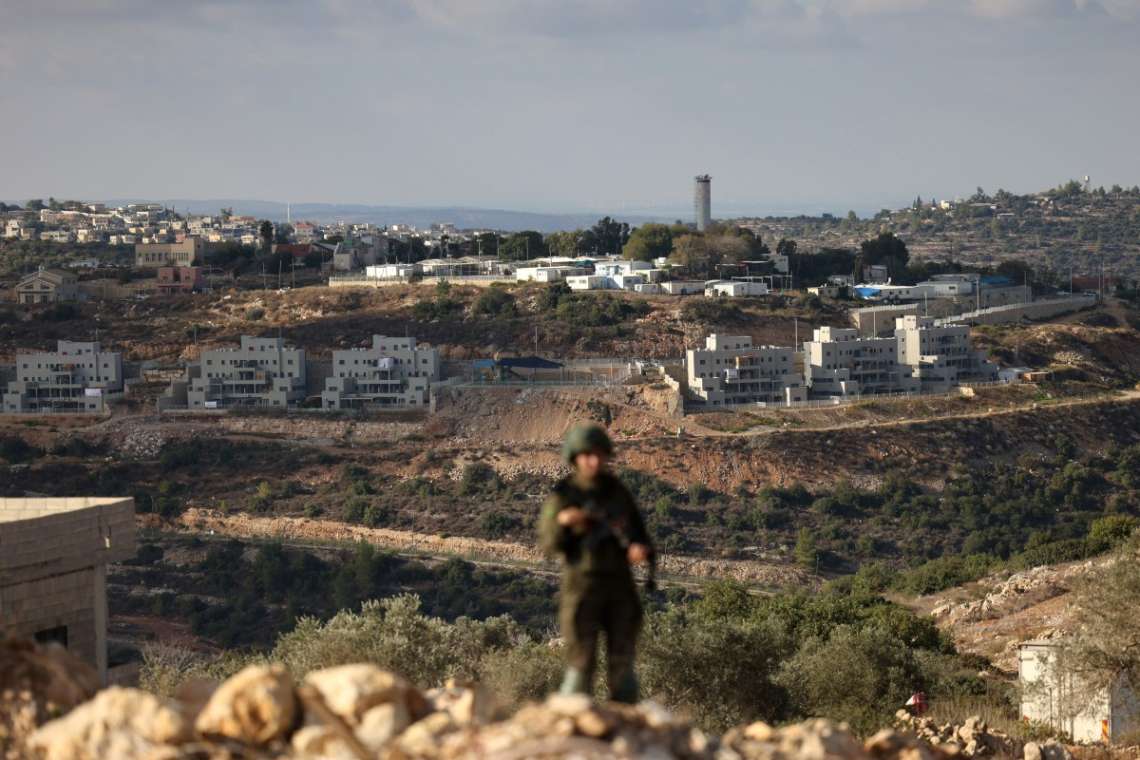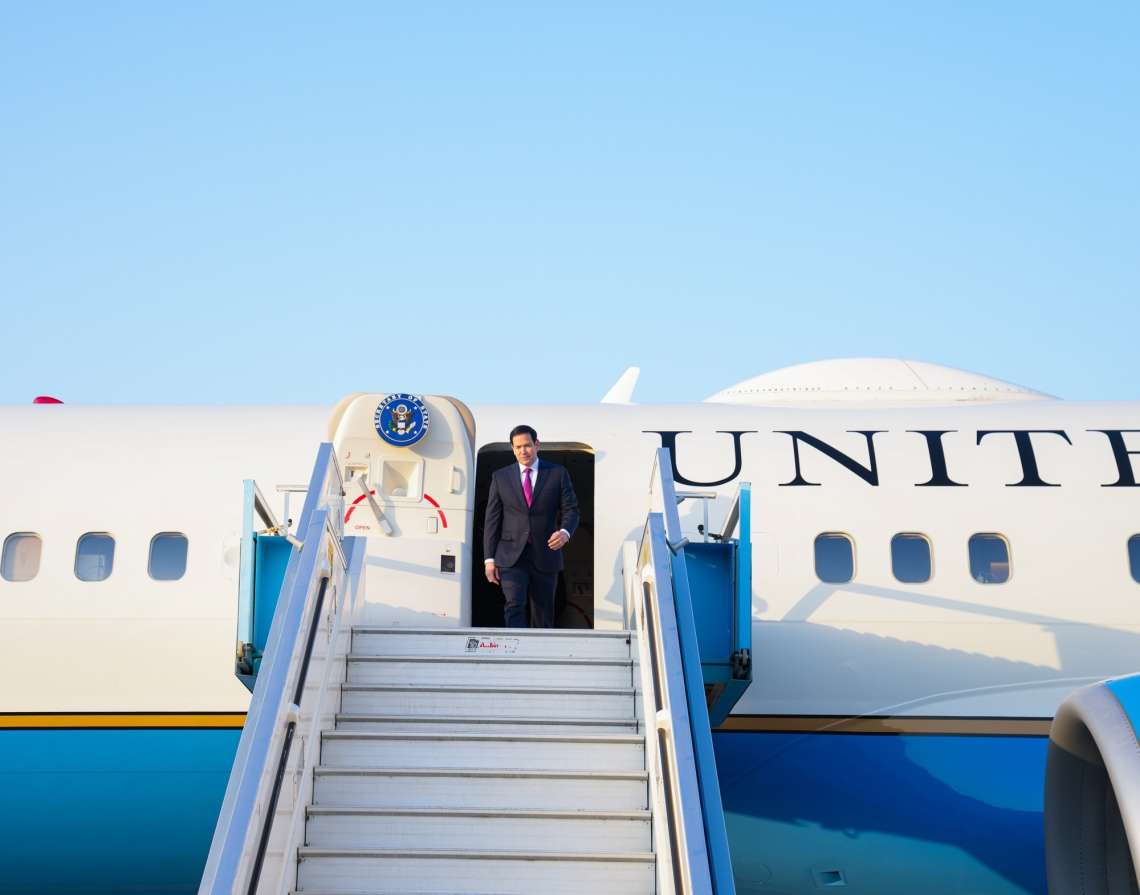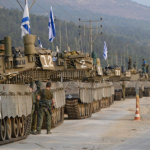Israeli planes reportedly dropped 150 air-to-ground missiles in their most intense raids since October 8, according to Lebanese sources. Israel’s military confirmed striking 100 rocket launchers….reports Asian Lite News
Israeli warplanes have launched about 60 airstrikes on Hezbollah strongholds in southern and eastern Lebanon, according to Lebanese military sources.
The sources, who spoke anonymously, said that “the planes on Thursday dropped about 150 air-to-ground missiles”, adding that the casualties and damage caused by the intensive raids, “the most violent since October 8”, are not yet known, Xinhua news agency reported.
The Israeli military said the Air Force had struck “100 rocket launchers, consisting of approximately 1,000 barrels.”
After hours of intensive strikes that began in the afternoon, the Israeli military announced just before midnight that the operation was complete.
The Lebanese sources said that about 50 Katyusha rockets were launched from southern Lebanon into northern Israel.
The exchange of fire occurred amidst two consecutive days of deadly explosions of pagers and communication devices across Lebanon allegedly carried out by Israel, which resulted in at least 37 fatalities and 2,931 injuries.
Israel has neither confirmed nor denied being behind the attacks but multiple security sources have said they were carried out by its spy agency Mossad.
The Lebanese army said on Thursday it was blowing up pagers and suspicious telecom devices in controlled blasts in different areas. It called on citizens to report any suspicious devices.
Lebanese authorities banned walkie-talkies and pagers from being taken on flights from Beirut airport until further notice, the National News Agency reported. Such devices were also banned from being shipped by air.
Qatar Airways bans pagers, walkie-talkies
Qatar Airways has prohibited passengers travelling from Beirut Rafic Hariri International Airport from bringing pagers and walkie-talkies on flights.
On Thursday, the airline, on social media platform X, said that the regulations would be in place until further notice.
“Effective immediately: Following the directive received from the Directorate General of Civil Aviation of the Republic of Lebanon, all passengers flying from Beirut Rafic Harirl International Airport (BEY) are prohibited from carrying pagers and walkie-talkies on board flights,” Qatar Airways posted on X.
Qatar Airways said that the ban applies to both checked and carry-on luggage, as well as cargo, and will be enforced until further notice.
The recent explosions add a new layer to the ongoing 11-month clashes between Israel and Hezbollah, marked by deadly Israeli airstrikes and Hezbollah’s attacks on northern Israel.
The Lebanese Foreign Ministry described the explosions as a “dangerous and deliberate Israeli escalation” which it said had been “accompanied by Israeli threats to expand the war towards Lebanon on a large scale”.
Lebanese internal security forces said several wireless communication devices were detonated across Lebanon, especially in Beirut’s southern suburbs, a Hezbollah stronghold.
The pagers that detonated were the latest model brought in by Hezbollah in recent months, three security sources said.
Use shelters, Israel alerts residents
The Israeli military has instructed residents in dozens of northern communities to stay near shelters and avoid non-essential outdoor activities due to possible “retaliation” from Hezbollah.
Residents in the Upper Galilee and the occupied Golan Heights were on Thursday night requested to minimize movement, avoid gatherings, monitor gates at the entrances to communities, and remain close to shelters, Xinhua news agency reported.
The unusual restrictions were issued by the Home Front Command after dozens of Israeli warplanes carried out one of the largest-scale attacks in Lebanon.
Israel’s new ceasefire deal
Israel has submitted a new proposal for a ceasefire deal with Hamas, which includes offering Hamas leader Yahya Sinwar and other members “safe passage” out of Gaza in return for the release of hostages, Israeli state media reported Thursday.
The proposal has been conveyed to the United States, which has been mediating the indirect talks alongside Qatar and Egypt, state-owned Kan Reshet Bet radio reported, citing Israeli officials.
Under the proposed terms, Israel will guarantee “safe passage” for Sinwar and any Hamas member wishing to leave the Palestinian territory without any assassination attempts, it reported.
The proposal also calls for demilitarizing Gaza and replacing Hamas there with what Israel describes as “a different governing mechanism,” it reported.
So far, Israeli Prime Minister Benjamin Netanyahu’s office has not officially confirmed the report.
Meanwhile, Lebanon’s Al Mayadeen TV quoted a senior Hamas official as saying that while the group has not yet received the proposal, the outline, based on media reports, was “absurd” and disregarded the mediators’ extensive efforts over the past eight months.














